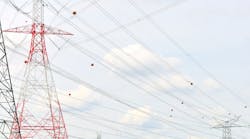Fifteen years ago, when I worked at Northeast Utilities (now Eversource), a test department colleague made an observation: “These relays are getting smarter, but we aren’t!” Seeing the gap between our skills and what the increasingly intelligent technology required of us, we went to work. We standardized on one relay platform, which simplified training and procurement. We then partnered with a nearby university and developed new courses in protection and controls, enrolling about 70 engineers in that program.
Today, power systems engineers need specialized skills, from protection and controls to cybersecurity to the integration of renewable and distributed generation. In response, higher education seeks to keep pace with these trends and prepare the next generation for a new kind of power industry.
Challenges of Distributed and Renewable Generation
States across the U.S. have adopted policies to promote renewable power, and the results are everywhere. Thousands more customers have installed solar generation, and wind farms are being built. In transmission operations, we see solar generation reducing demand in the middle of the day with fast power-ramp rates to meet the evening peaks. In distribution, we see reduced fault currents and the possibility of reverse power flow driving new and more complex approaches to protection.
To improve resilience even more, many areas in the northeastern U.S. are considering the installation of microgrids. These microgrids have multiple operating modes, stand-alone control systems and potentially adaptive protection; they are much more complex than simple one-way power systems.
The Smart Grid
Smart grid deployment brings much greater observability and control. Customers can monitor their usage and leverage time-of-day rates to save money while reducing regional peak demand. Meanwhile, the volume of sensor and meter data grows exponentially. Utilities can use big-data analytics to improve traditional methods of outage recovery and revenue protection (theft detection).
This advanced integration of communications and control systems with the physical grid means new cybersecurity challenges. Even as NERC standards evolve to better protect the traditional power-grid control systems, new systems like home area networks develop. Government, industry and academia are all working together to help manage and reduce the ever-more complex cybersecurity risks.
Engineers Wanted
Complexity is driving demand for specialized competences like protection and controls, communications, data analysis and visualization, and cybersecurity. This is good news for power systems engineers who now experience a robust job market and a rise in salaries.
At WPI, power systems is once again a popular course of study. Our junior-/senior-level undergraduate power courses are well attended, and we have a strong graduate program. To stay current, we regularly enrich and expand our curricula.
We are doing our part to fill the pipeline with new engineers who have the cutting-edge capabilities they need to go into the workplace and solve the power problems of today and tomorrow.
Modern Education for the Modern Student
The Internet has changed how and where students learn. More than two-thirds of our graduate students in power systems take all of their courses online. This flexibility allows them to advance their education without hitting “pause” on work, family and friends.
“I love the online delivery,” said Ken Gross, a former WPI student in power systems. “With lectures and weekly self-paced learning, I can complete a master’s degree while maintaining my full-time job, which can be very demanding with long hours and extensive travel.”
Online education isn’t just good for students; it’s good for business. Chris Root, COO of Vermont Electric Power Co., had this to say about it: “Rutland, Vermont, is far from any technical university that might be able to properly educate our team. WPI…created a 100% online program for our engineers that greatly improved their technical capabilities and increased their exposure to specialties within power systems.…Instead of learning something over five years on the job, our engineers are learning high-level concepts and skills at an accelerated rate through more technical exposure.”
As it has done for over 100 years, today’s power industry works hard to provide safe, reliable service for people all over the world, while meeting the challenges of a growing demand on its systems. Expanded access to innovations in power systems, courtesy of online education, means our industry’s professionals are becoming smarter and more prepared to modernize and maintain the grid of today for a brighter tomorrow.
Mike Ahern is the director of power systems at Worcester Polytechnic Institute.

